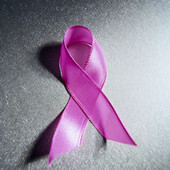- Could Your Grocery Store Meat Be Causing Recurring UTIs?
- Are You Making This Expensive Thermostat Error This Winter?
- Recognizing the Signs of Hypothyroidism
- 10 Strategies to Overcome Insomnia
- Could Artificial Sweeteners Be Aging the Brain Faster?
- Techniques for Soothing Your Nervous System
- Does the Water in Your House Smell Funny? Here’s Why
- Can a Daily Dose of Apple Cider Vinegar Actually Aid Weight Loss?
- 6 Health Beverages That Can Actually Spike Your Blood Sugar
- Treatment Options for Social Anxiety Disorder
Gene May Help Shield Hispanic Women From Breast Cancer, Study Says


About one-fifth of Hispanic women have a genetic variation that offers significant protection against breast cancer risk, according to a new study.
The genetic variant originates from native Americans and reduces breast cancer risk by 40 percent to 80 percent, particularly the more aggressive estrogen receptor-negative forms of the disease, researchers said.
“The effect is quite significant,” study senior author Dr. Elad Ziv, a professor of medicine at the University of California, San Francisco, said in a university news release.
“If you have one copy of this variant, which is the case for approximately 20 percent of U.S. Latinas, you are about 40 percent less likely to have breast cancer. If you have two copies, which occurs in approximately 1 percent of the U.S. Latina population, the reduction in risk is on the order of 80 percent,” Ziv explained.
The researchers pinpointed the genetic variant after analyzing DNA from 3,140 breast cancer patients in the United States, Mexico and Columbia, as well as from nearly 8,200 women without breast cancer in those same countries.
The team also found that women with the genetic variant have breast tissue that appears less dense on mammograms. Breast tissue that appears more dense on a mammogram is a known risk factor for breast cancer, according to the study published Oct. 20 in the journal Nature Communications.
Hispanic women are at lower risk for breast cancer than women in other ethnic groups. Lifetime risk of the disease is 13 percent for whites, 11 percent for blacks, and less than 10 percent for Hispanics, according to the U.S. National Cancer Institute. The risk is even lower for Hispanic women with native American ancestry.
The newly identified genetic variant is on chromosome 6, near a gene that codes for an estrogen receptor called ESR1. Further research is needed to determine how the genetic variant affects breast cancer risk, the researchers said.
“If we can use these results to better understand how this protects [against] estrogen receptor-negative breast cancer, that would be interesting and important, because right now we have no good way to prevent that type of breast cancer,” Ziv said.
More information
The American Cancer Society has more about breast cancer.
Source: HealthDay
Copyright © 2026 HealthDay. All rights reserved.










